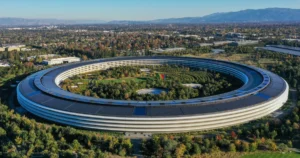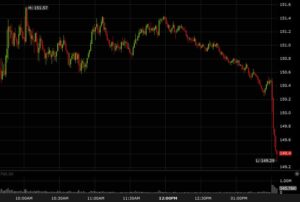Apple to Slow Hiring in Latest Economic Warning, Bloomberg provided details regarding Monday that Apple would slow hiring in some organization divisions in the coming months, another sign that a historically solid work market might be cooling down as the Federal Reserve attempts to slow down an overheated economy.

The tech behemoth’s mindful hiring position won’t expand companywide, per Bloomberg’s sources. However, the go-slow position is as yet uncommon for Apple, and is the latest in a string of negative signs from a portion of America’s greatest organizations, especially in the tech sector.
Last week, Google CEO Sundar Pichai told representatives that the organization will be “slowing down the speed of hiring until the end of the year.” In a comparative note, Meta’s central item official cautioned of “serious times” ahead.
Their activities reflect more extensive cynicism among a few economic forecasters. On Monday, Goldman Sachs cautioned that work development was ready to fall “forcefully,” forecasting a slight tick up in the joblessness rate in the coming year. Larry Summers, who gave judicious warnings about inflation, trusts that the Federal Reserve’s endeavors to slow it will bring about 6% joblessness.

However even as inflation continues to nibble and customer feeling remains low, Americans continue to spend. Until further notice Netflix is in rough shape, the work market major areas of strength for remains, joblessness at a simple 3.6 percent, among the least rates of all time. Furthermore, spotters say there’s little indication of a hiring slowdown among innovation firms, regardless of the widely discussed warnings.
In short: The American economy is showing an adequate number of contradicting messages to make any kind of forecast curiously troublesome.
At the midpoint of the year, the tech-weighty Nasdaq has fallen by 30% and the expansive based S&P 500 is somewhere near more than 20%. The two indexes are in bear market territory, and the Dow Jones Industrial Average is in a revision. Year to date, it is down more than 15%.
“At the point when interest rates go up, it changes all the math,” says Charles Bobrinskoy, bad habit administrator of Ariel Investments. “It changes the math of buying a vehicle, buying a house, buying a bond, and it changes the worth of especially tech stocks, whose earnings are distant later on.”
Furthermore, that implies that all that whipsawing on Wall Street of the most recent couple of months — including the monstrous single-day swings of in excess of 1,000 points — reflects genuine anxiety among investors. They’re concerned the Fed might tip the U.S. economy into a downturn.
High development stocks were quick to fall
Historically, when interest rates rise and borrowing costs go up, investors take out cash from the more hazardous pieces of the economy. High development organizations and tech stocks are quick to see their stocks fall.
This time is the same. The S&P 500’s most awful stock entertainer to date is Netflix, which is down 70%. An incredible inversion for an organization saw it share cost soar during the pandemic, while the streaming help turned into a lifeline for the secured. The second-most awful entertainer is Etsy, the online commercial center for workmanship and specialty from craftsmans, which is down practically 65%.
